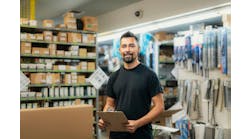As a former drag racer I really appreciate acceleration and I am typically not intimidated by change. Put the two together and you have the recipe for exhilaration or intimidation or both. I believe that is what our industry is currently experiencing.
I’ve been reading the MSO Report by Vince Romans and Mary Jane Kurowski of The Romans Group. I am amazed at how the rate of acquisition powered by capital investment has accelerated. It’s obvious as you read on-line trade publications. Every week there is at least one or two announcements of acquisition. Lately many have included MSOs of 5-15 locations that most of us would have considered stable, even with a number of second generation people in management that one would have considered the heir apparent. The Romans Group report states, “Through September 2014, MSO consolidator merger and acquisition activity within the collision repair industry has accelerated, representing nearly twice the revenue of 2013.” Private equity money appears to be readily available, based on the activity of the consolidators, indicating consolidation is far from slowing down.
Within just a few years MSO’s have grown from owning 10 percent to more than 20 percent of the market.
Technology is changing like never before. The concept of aluminum vehicle structure is no longer just for high end exotics. More carbon fiber is coming. Complexity and usage of electronics is exploding. The usage of factory repair information on each repair has gone from the exception to the norm, if not a requirement. New car sales have taken off as our economy is improving. Instead of focusing on cost reduction and survival our industry is returning to a focus on changing technologies, new processes, and growth. There was a buzz at NACE that hasn’t been there in recent years. Equipment sales at the show were reported to have been strong. I been hearing more reports of increased difficulties in finding new employment candidates, a problem seldom reported during the recession.
I-CAR’s financial status and level of activity appears to be in a much better place than in recent years, when they experienced leadership changes and restructuring. New technologies and OE certifications are providing needs for more education and I-CAR is responding.
Whether all of these points are favorable to you or not, you cannot deny their existence. Yet surprisingly I continue to hear reports of some who choose not to respond. I talk to I-CAR staff who state that a significant percentage of repairers do not participate in training to keep abreast of new technologies. Often they hear phrases like, “I already know how to repair these vehicles,” or “the training is too redundant,” or “I don’t get a return on the investment of training dollars.” I hear from estimators who state that they get push back from some insurers who question why the shop embraces specific OE repair methodologies. They hear phrases like, “Why can’t you repair it XXX way, as we have done in the past?” or “we don’t pay for that,” or “I don’t understand why we have to repair it XXX way.”
All of those phrases often indicate a lack of knowledge on factory repair methods. I personally had an insurance representative tell me that since techs in our shop were certified to weld aluminum he couldn’t understand why we couldn’t weld in a section of an aluminum quarter panel instead of replacing the entire panel. I replied that replacing the entire panel was the factory repair method and that sectioning was not. He went on to say, “What!? Do you do everything the OE tells you to do?” My reply was, “essentially, yes!”
As an industry and as individuals in the midst of accelerated change we all have important decisions to make. Just a few of the topics include OE repair methodology compliance, training and overcoming its costs, new equipment and overcoming its costs, joining or competing with consolidators, insurance referrals of vehicles in OE certification programs (shouldn’t they only be referred to certified shops?), staffing and more. Whether you are at the top of corporate pyramid or in the field negotiating and implementing company policy it is in the best interest of all that we are educated and making informed decisions. If we elect not to, we stand in the way of progress, hurt our industry, potentially harm our customers, and ultimately hurt ourselves.
Subscribe to ABRN and receive articles like this every month…absolutely free. Click here


